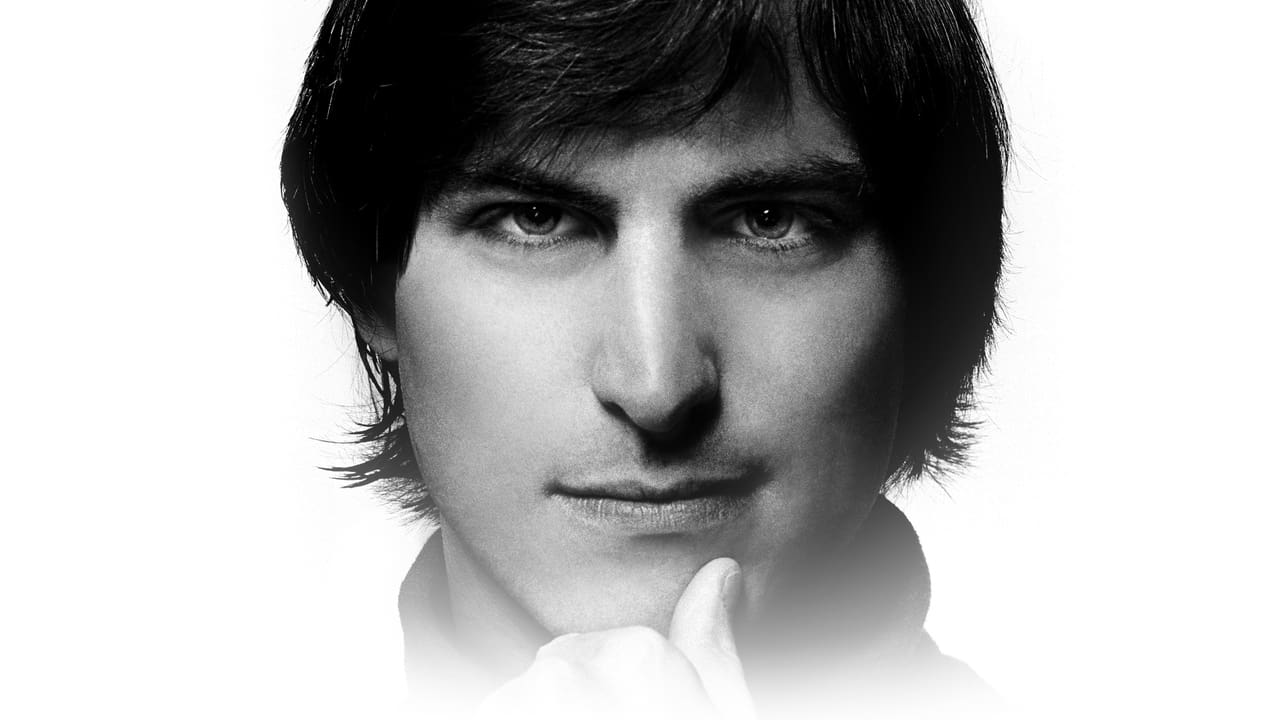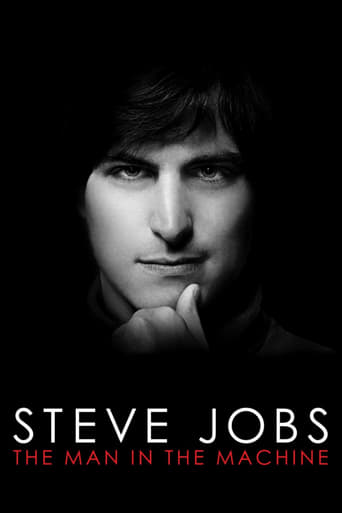

I have seen and read most everything about Steve Jobs. Although there is not too much new here, the author looks at Jobs from an interesting perspective. Why is it that so many people who never met or knew Steve Jobs worship him so much. I guess the same could have been said about Michael Jackson fans. I have read some at Apple were critical of this film even though they may not have seen it. I found this to be very objective and balanced, it did show the great things Jobs accomplished along with his misgivings. There were a few parts that were weak, like when Jobs zen master talked about Jobs, it was hard to understand, Gibney should have used subtitles. Gibney was a bit critical about Jobs first girlfriend, Chrisanne Brennan, who said Jobs blew it by saying Jobs produced some of the most successful products that everyone loved. Well that isn't exactly true, I never owned an Apple product until recently and never fell in love with a consumer gadget. The point was she was making that Gibney missed that as a spiritual seeker who Jobs was in his youth, he wanted peace and love in the world, but what he became was a cold hearted business person who valued products over people.Some have said that he mellowed out and changed over time, but it was very clear he did not. He was responsible for illegal backdating of options, but let others take the blame. Didn't seem to care much about workers in China committing suicide, did away with Apple's corporate philanthropy even when it had huge cash reserves, entered into illegal agreements not to poach workers for rivals, abused his power by having police search a Gizmodo reporters house for a prototype Iphone, lied at his Stanford graduation ceremony about when his doctors detected cancer that he got it treated immediately when in fact he thought he was smarter than his doctors and waited 9 months and didn't disclose his health issues to the board of this large listed company.I liked the author's conclusion at the end. To answer his question about why people cared so much about Steve Jobs, a man they never met, was really more a question about those who worshipped Jobs and Apple products rather than Steve Jobs himself who was a flawed individual.
... View MoreI hate to say it but Gibney seriously missed the mark here. I think his recent trips through Land O Lance and Scientology have gone to his head big time. It seems pretty clear that Gibney, who's become known for the revelatory nature of his films, sought to do a "here's the real deal behind the guy you thought you knew" piece - and he failed miserably. First of all, his mission is doomed from the outset due to one very simple reason - it's simply impossible to deconstruct anyone's character inside of a 2-hour documentary. With the Armstrong piece, the scope was limited strictly to the fraud that is integral to Armstrong and even then, only to how that fraud infected Armstrong's cycling career. But here, Gibney decided to go for the whole enchilada. Second, there's nothing at all new or revealing in this piece. Everything Gibney brings up is all well-known by virtue of two very recent Jobs bios as well as the public domain. Rounding out the trifecta, Gibney tried to get in a few shots through the proverbial heart by interviewing some apparently key individuals to help in his deconstruction debacle - but alas this was also a nogo...none of the folks he interviewed really have any creditability on the subjects they were being called on to discuss and even if they did, again, nothing revelatory at all.It's clear within the first few minutes that what Gibney is really trying to do, via deconstruction, is to understand why so many loved Jobs. The problem here is that the question is not that hard to understand nor answer. The connection we feel is disguised as being to Jobs when in reality it's to what he has given us. It's the exact same as with anything we become emotionally attached to - music, a movie, etc. Sometimes those things evoke a strong emotional reaction and that single thing is the seed from which the resulting attachment grows. Apple products have been, and continue to be, engineered (as Jobs himself said) at the intersection of art and technology. They are meant to change how we express ourselves and interact with technology. And through that interaction, they are meant to truly enhance (hopefully by orders of magnitude) how we experience life and the people around us. And while Jobs didn't directly design nor build every amazing product himself, he was definitely the backbone and driving force behind the ideas and culture from which all on the team derived direction and motivation. Christ man, how could we not have an emotional attachment to Jobs and the products his teams brought to us??? Frankly, people either get it or they don't - And if they don't then fine but don't spin too many cycles on it because as Billy from The Departed says "It ain't supernatural".Unfortunately, Gibney did spin the cycles. After telling us he's made literally zero progress toward answering "Why do we love Jobs?", he closes with what appears to be a soliloquy\wax poetic of the contradictions that are Jobs - as if Gibney had a clue. People that were far closer to Jobs and who knew him a lot longer and went through a lot more with him oddly arrive at far different conclusions - who you gonna trust??? Yeah - this is the part where you walk out, go to the ticket booth, and demand your money back.Net-net - to those yet to see this film, I strongly urge you to save your $$$ and wait for this thing to hit any number of free streaming outlets. To those who did pony up the cash - me included - BUMMER.
... View MoreDespite his over productivity and well-known biases, Alex Gibney is always an essential documentarian to watch, especially since his Oscar winning film. He's already made the best documentary of the year thus far with his attack on Scientology, Going Clear, anything else is icing on the cake. While that film is a revealing call to arms, his Steve Jobs film The Man In The Machine tries those same tricks but it's coming a little too late, especially as the film frames itself over the outpouring of grief over his death. Not that the film is a poor effort. As Going Clear illustrated what we already knew, so does this film. It's not a 2-hour attack as reported - along with the justifications to question society's hero worship towards him are all the reasons he's beloved and considered a visionary that changed the world. Those later Apple announcements with the awed cheers for Jobs earn a similar spine-tingle as the Scientology congregations in Going Clear. It's more endearing here.The negative reaction to this documentary's criticisms almost highlight that hero worship he still harnesses, but it's difficult to argue over the hard facts of his bullying, both minor and major as documented here. Ultimately, Gibney poses the film as a reflection on our emotional connection to our technology and how that extends to its creator, but while it's an interesting conversation it results only in vague existentialism asking similar questions that he started with. Yes, we've grown dependant on our tech and Jobs' death sparked fear that innovation will slow, that's more or less where the grief comes from and nothing to do with Jobs' life or business tactics. His image as an icon is Goliath and this film is a little David and it offers a small but fair chiseling of that towering statue. It's not Gibney's best work and it spends this year in the shadow of two significant films, but it's still solidly produced and worth a watch for an insight into Jobs' life, especially with Danny Boyle's biopic on the horizon.7/10
... View MoreAlex Gibney presents another unauthorized documentary about the late Apple CEO Steve Jobs.There are already many that have been made in the past especially after Jobs passed away.But this particular documentary presents an intriguing question to the viewer with regards to why billions of people around the world have felt outpouring pain and sadness considering that he happens to be not a beloved leader of a country nor an iconic entertainer but rather someone who owns a company that have sold computers.It tries to provide an answer to that question by taking an examination of who Steve Jobs is as a person and Apple Computer as a company.It starts by providing the history of Apple Computer during its early days when it started in the garage until it the birth of Macintosh.It presents archival footage and interviews of Jobs.Since Apple does not want to participate in it,the interviews conducted were that of former Apple executives and employees like Steve Wozniak and Daniel Kottke;former girlfriend Chrisann Brennan and her daughter,Lisa;and journalists who conducted interviews with him.Things become interesting as it shifts to a judgment of the late Apple CEO as a person as it presents him someone who possesses an arrogant,narcissistic and horrible character.It also explores his actions as Apple CEO.It presents him as a tyrannical,demanding,humiliating and a hard driving leader who is willing to throw someone under the bus any time.He also was willing to exploit cheap foreign labor in China that had workers committing suicide due to a demanding work schedule.Aside from that,he also did actions to avoid taxes like backtracking and having tax shelters abroad.The negative side of Jobs continues to build on in it which present employees of Apple and the fans of Apple product users will surely dislike about the documentary especially with Gibney pushing for lots of information.At the conclusion,we get to see that it tries to answer the question that indeed Steve Jobs is a person that is full of contradictions.He maybe a horrible person but he is a dynamic business leader who made his employees at Apple feel that they are a group of people that are changing the world and he is a charismatic leader that have made Apple users as people who are using modern breakthrough products that they have learned to love.
... View More